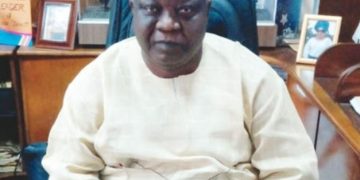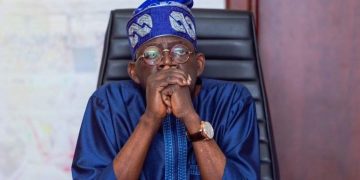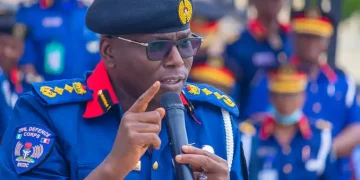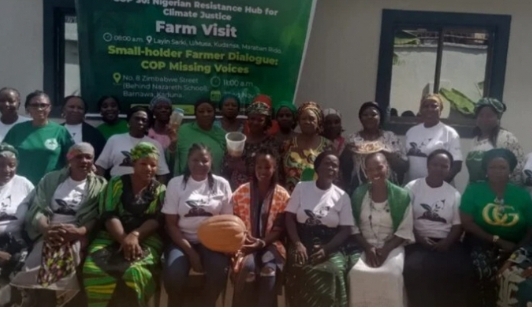As world leaders, diplomats and climate negotiators discussed at COP30 in Belém, Brazil, women on the frontlines of climate change in Nigeria say their realities, struggles and solutions remain missing from the global climate table.
The 2025 United Nations Climate Change Conference, also known as the Conference of the Parties to the UNFCCC (COP30), is the 30th session of the United Nations Climate Change Conference.
COP, held annually, is where the world comes together to agree on the actions to address the climate crisis, such as limiting the global temperature rise to 1.5 degrees Celsius, helping vulnerable communities adapt to the effects of climate change, and achieving net-zero emissions by 2050.
It was held at the Hangar Convention Centre in Belém, Brazil, from 10 to 21 November 2025.
Olanike Olugboji-Daramola, the founder and executive director of Women Initiative for Sustainable Environment (WISE), said her organisation had spent more than 20 years advancing constructive environmental ideals and strengthening women and girls to become natural resource managers, climate actors and peacebuilders.
At a farm visit and small-holder farmer dialogue organised on Saturday in Kaduna by WISE, Mrs Olugboji-Daramola said it was troubling that those most affected by climate impacts are the least represented at major climate negotiations.
She said it was unfortunate that many rural women farmers whose livelihoods are the most disrupted by climate change were unaware that high-level climate meetings determining their futures take place annually across the world.
The founder added that the ongoing COP30 should have been a platform where women living with the daily consequences of climate change could speak for themselves, lamenting that the process had been “hijacked by big players and big corporations.”
Mrs Olugboji-Daramola said the space had increasingly become a jamboree for people with no real connection to grassroots climate realities, while women who endure extreme weather conditions, crop failure, poor yields, land loss and livelihood threats remain shut out.
She said WISE was therefore creating local spaces where women could understand global processes, articulate thei0r challenges and move from focusing on burdens to showcasing their brilliance and leadership.
The activist added that the organisation’s regenerative agriculture accelerator was helping women farmers return to organic farming practices that restore biodiversity and improve soil health.
She also said that the WISE Women Clean Cooking Training and Entrepreneurship Project had produced over 2,000 clean cooking entrepreneurs across Nigeria, including one woman from the pilot training who has become one of the country’s leading producers of energy-efficient cookstoves.
Also at the event was Joanne Kuria of the Association of Women’s Rights in Development (AWID), Kenya, who said she was visiting Nigeria for the first time to collaborate with WISE in creating alternative, people-centred climate spaces on the sidelines of COP30.
Ms Kuria said although negotiations are taking place in Brazil, the real climate stories are unfolding in African communities where women farmers are struggling with harsher temperatures, disrupted rainfall patterns, deforestation, and shrinking farmlands.
She said the stories she heard in Kaduna were almost identical to those in Kenya, noting that African women farmers experience the same climate stresses and the same barriers to land ownership and decision-making.
She emphasised the urgent need for African women to build collective solidarity and go to global climate tables with one voice, insisting that the continent’s climate experiences and gendered impacts must be reflected in global decisions.
Rural women farmers at the gathering, expressed deep frustration at being excluded from global platforms and denied opportunities to directly share their experiences.
Asibi Hassan, chairperson of the Sabon Gari Peace Women Multipurpose Cooperative Society, said she cultivated one hectare of beans this year and expected to harvest between seven and ten bags, but thieves stole her entire produce.
She said if she had the opportunity to attend COP30, she would speak about insecurity, land rights, and the multiple burdens rural women face in sustaining food production.
Ms Hassan said what troubles her most is the systemic denial of women’s right to own vast farmland in rural areas.
She said women are hardworking and capable, but cultural and structural restrictions limit their ability to farm on a larger scale.
Ms Hassan said mechanised farming could help women achieve results equal to or better than men, but support remains inadequate.
She added that late rainfall and early cessation this year drastically reduced crop yields, and she would have used a COP platform to advise women to engage in timely cultivation, adopt soil practices that preserve moisture, and prioritise crops suited to changing climatic conditions.
She urged the Nigerian government to partner with grassroots NGOs to reach rural women with climate awareness and adaptation strategies.
Ms Hassan also called for the return of monthly sanitation to ensure clearance of water channels, and the sanctioning or relocation of individuals who build on waterways.
Another farmer, Juliana Turaki, leader of the Gonin Gora Women Multi-Purpose Cooperative Society, said she would, if given the opportunity, use the COP platform to insist that the experiences of rural women must be prioritised in global climate decisions.
She said rural women face severe challenges when seeking farmland, as they are often restricted to small plots, while men are given priority access.
Ms Turaki stated that inheritance practices overwhelmingly favour male children, leaving women without land rights unless they have the resources to buy land.
She said women should be recognised as full agricultural actors and allowed to own land or be considered fairly during inheritance.
She said giving women access to land would significantly reduce their suffering and strengthen food security in rural communities already struggling with climate change.
Other women at the dialogue said the stories in Kaduna showed the urgent need to rethink climate representation and ensure that global decisions reflect the realities of those experiencing climate shocks directly.
They said while negotiations continued in Brazil, the real test of climate justice lies in amplifying their voices as grassroots women farmers and ensuring they are not left behind in designing local and global solutions.
NAN




































